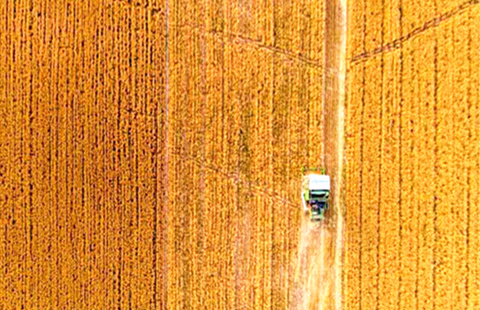The army needs to be consolidated
January 25, 1975
Our army has fine traditions. Comrade Mao Zedong established an excellent system and a fine style of work for it as early as the period of struggle in the Jinggang Mountains. With this army of ours, the Party commands the gun, and not vice versa. Through protracted struggles against warlordism, the army achieved unity in its own ranks and formed close ties with the masses. However, it was thrown into considerable chaos after Lin Biao was put in charge of army work in 1959, and especially in the later period under him. Now, many fine traditions have been discarded and the army is seriously bloated organizationally. The size of the armed forces has increased substantially and military expenditures take up a larger proportion of the state budget than before, with a lot of money being spent just on food and clothing. What is more important is that an over-expanded and inefficient army is not combat-worthy. I think that the overwhelming majority of our army comrades are dissatisfied with the present state of affairs. It is for this reason that Comrade Mao Zedong has called for the consolidation of the army. We must reduce the size of our armed forces, confront the problem of extensive overstaffing and restore the army's fine traditions. This will involve a great deal of work. Since the Headquarters of the General Staff, the General Political Department and the General Logistics Department bear major responsibility, they should be the first to be consolidated.
We must set things right in the armed forces in accordance with Comrade Mao Zedong's instructions on stability and unity. In recent years, our army has been confronted with a major new problem, factionalism, which is quite serious in some units. It is mainly the officers who are involved. The overwhelming majority of our officers are good, but there is indeed a small handful who are bent on factionalism. They engage in factional activities both inside the army and in the civilian units where they go to work. In order to achieve stability and unity, we must eliminate factionalism and enhance Party spirit. In the past, during the protracted and scattered guerrilla wars our army fought in the countryside, many separate ``mountain strongholds'' came into being. After the Red Army's arrival in northern Shaanxi in the Long March and during the subsequent War of Resistance Against Japan [1937-45], Comrade Mao Zedong set before the whole Party and army the task of overcoming the tendency towards the ``mountain-stronghold'' mentality. After the Yan'an rectification movement, which among other things, opposed sectarianism, the whole Party achieved a new level of unity, and this provided the basic guarantee for our victories in the War of Resistance and the War of Liberation [1946-49]. Recently, factionalism has been reasserting itself; this is something to which we must certainly pay attention. Unless factionalism is eliminated, stability and unity cannot be achieved and the army's fighting capacity is sure to be weakened. Each cadre is required to put Party spirit above everything else. Those who are pleased to engage in factionalism should wake up and correct their mistakes. If they do so, everything will be all right. But one of the important principles to be observed in the future appointment and promotion of army officers is that those who are seriously involved in factional activities or who cling stubbornly to factional ways should not be given leading posts.
Another problem is discipline in the army. Why did Comrade Mao Zedong propose the singing of The Three Main Rules of Discipline and the Eight Points for Attention, with special emphasis on the rule ``obey orders in all your actions''? Precisely to stress discipline. An army should act like an army. If we want to strengthen the sense of discipline, we must start with the general headquarters and units in Beijing. We simply cannot allow things to remain as they are. So to consolidate the army we must both enhance Party spirit and eliminate factionalism, and strengthen discipline.
There are other problems which should also be dealt with -- for instance, the implementation of Party policies. Many have not yet been carried out. Every unit should study this problem conscientiously and carry out Party policies properly, because only thus can we help arouse people's enthusiasm and achieve stability and unity.
The Headquarters of the General Staff is expected and required to advise the Central Committee of the Party, its Military Commission, and Chairman Mao, the commander of our armed forces. Comrade Mao Zedong used to criticize the Headquarters of the General Staff for failing to offer advice. This situation should be changed. A lot needs to be done. Problems have piled up. The Headquarters of the General Staff must thoroughly straighten things out according to the military line and the principles for building the army formulated by Comrade Mao Zedong, so that we can really fulfil our advisory function.
Today I have just come to meet you. We will need to have further discussions on ways to improve work in the army. But I think there can be no mistake about the principles I have just mentioned, namely, the need to achieve consolidation, stability and unity, and the need to ensure implementation of Party policies. To accomplish these tasks, we must enhance Party spirit, eliminate factionalism, heighten the sense of discipline and improve efficiency. I hope that all cadres in the Headquarters of the General Staff will unite in this spirit and that they will do their work well.
(Speech at a meeting of officers of regimental level and above at the Headquarters of the General Staff of the Chinese People's Liberation Army. Comrade Deng Xiaoping became Vice-Chairman of the Military Commission of the Central Committee of the Communist Party of China and concurrently Chief of the General Staff on January 5, 1975.)
(From Selected Works of Deng Xiaoping, Volume II <1975-1982>)
- China issues guidelines to develop 'all-for-one' tourism demonstration zones
- Torrential rain triggers disaster in Southwest China
- Harvest time for wheat reapers in Shanxi
- Over 200 couples marry in Changchun group wedding
- Calligraphy tops other icons of Chinese culture, WeChat data shows

























